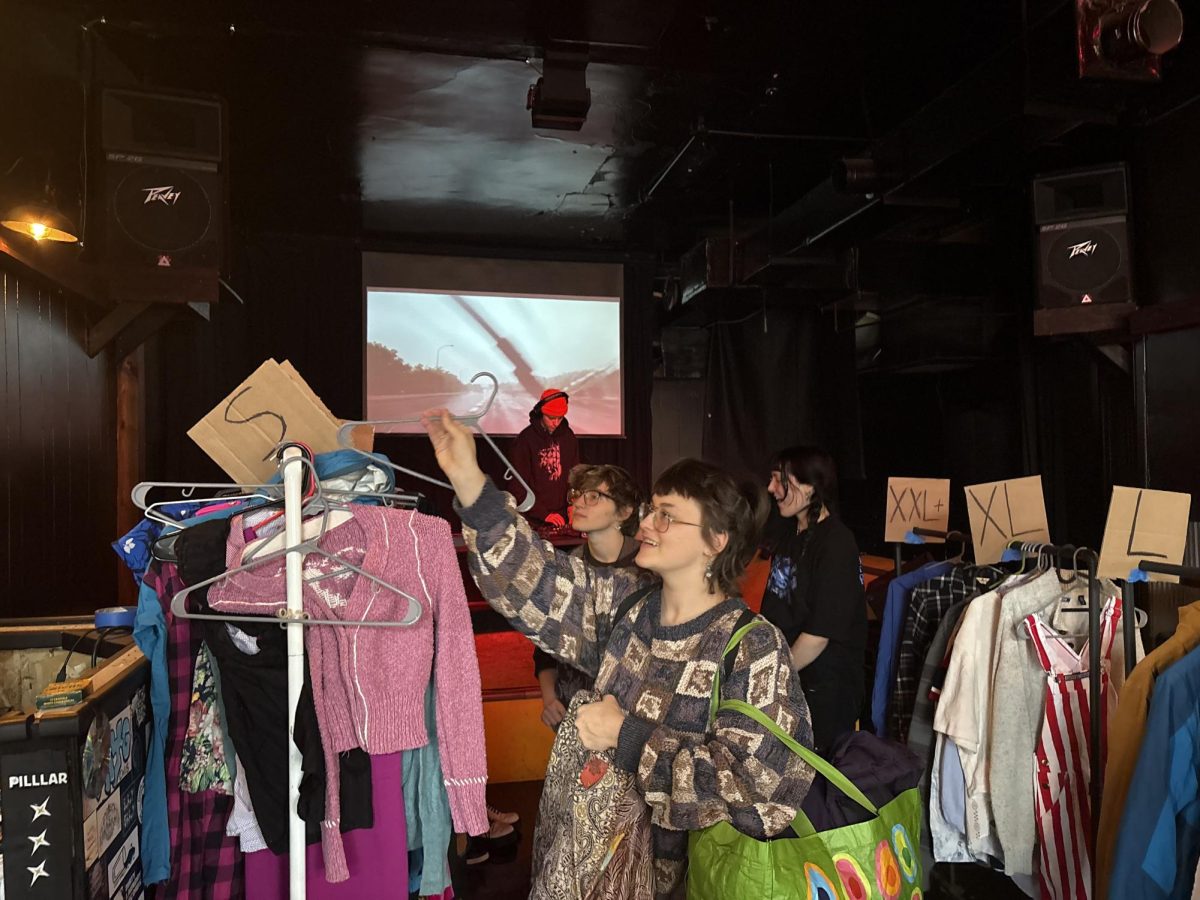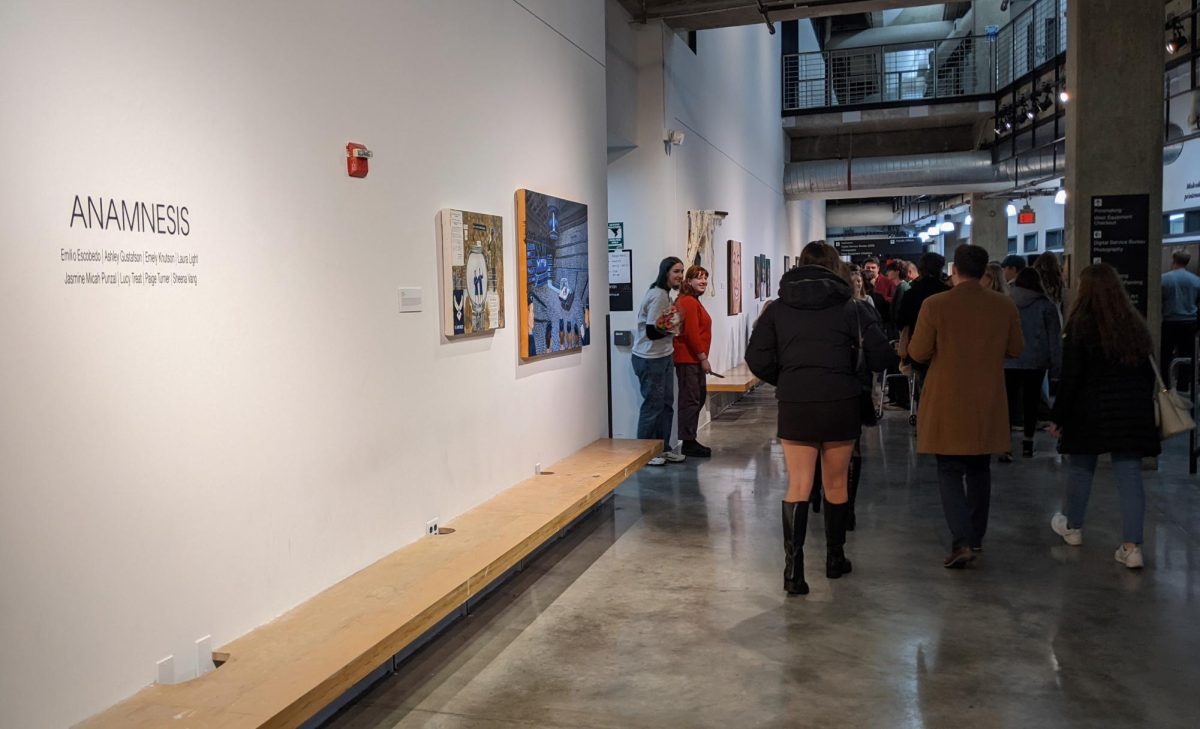The Minutemen are not easy to listen to. Their sound is abrasive – a gigantic overload of what it feels like to be alive. And that scares us.
It scares us because we are sensitive little babies. We are not accustomed to hearing grizzly nerve-endings piped through a stack of amps and carnivorous treble eating our eardrums. We are not used to musical politics having relevance or effect. We are not used to real rock ‘n’ roll.
We are used to clean asses and boneless chicken and collegiate chumps like Coldplay. We like our new car scents and our antiperspirants. We like our
toilet paper sold by dancing bears who take nothing less than flower-filled happy-smiley craps.
Rock ‘n’ roll should be a life-changing experience. And we are unsure about life-changing experiences. It’s like taking good drugs for the first time or standing in the desert during an atomic bomb test. We know things will be different afterward and we’re not sure if that’s OK.
Rock music feeds on that fear. It grows and becomes a terrible twisted receptacle for every diseased and underwhelming member out there. It gives birth to music that is contrived and useless and a tool of authority. It gives birth to music without balls, without guts, without teeth, without glory.
So when a band like The Minutemen is able to chew its way out this kind of monster’s stomach to create music as ahead of its time and context as any that ever existed, it is a big deal.
“We Jam Econo: The Story of The Minutemen” pays tribute to this endearing legacy. At its heart and soul is the story of three friends – D. Boon, Mike Watt, and George Hurley – who played together in a punk band out of San Pedro, Calif., until the untimely death of Boon in 1985.
As a testament to the genius and weirdness of the group, the documentary mixes live footage with various interviews from a who’s-who of punk rock – Henry Rollins, John Doe, and Thurston Moore, to name a few – and comes off as the perfect on-screen adaptation of the band’s story. It is genuine and beautiful and completely honest. It makes today’s independent music scene look inclusive and embarrassing.
“It’s great to see this movie now because it makes me feel how important they were then,” said Know Name Records employee Chris Valenty, a misfit youth of the 1980s and Minutemen devotee.
“Their songs were such a huge deal – they were speaking directly to you. They were just so poetic. They spoke about art and politics and against the Reagan administration’s involvement in stuff like El Salvador,” he said. “I think they really understood the punk movement more than most bands. And the parallels between now and then in 1985 are just so similar. I wish more people would go and see this film.”
Some people will not like The Minutemen. For some, the band, and punk music in general, will always seem like vomit out of a cannon: painful and offensive and violent and disgusting all at the same time, a lot of noise and too little Western tradition to be worth their pretty while. These people are the robotic arms of everything that is wrong with this country.
Everyone else should spend $6.50 to have this film shoot a hole through their brains. The Minutemen could be just the kind of voice you’re looking for in these awful times – the voice that every other musician right now seems incapable of harnessing. They could be the greatest thing that has ever happened to you. Their band could be your life.
– Frederic Hanson welcomes comments at [email protected]







